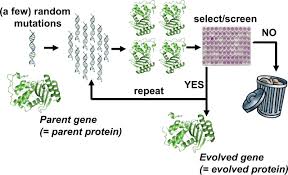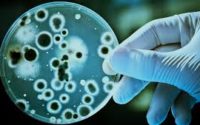Directed Evolution (DE) and Nobel Prize for Chemistry 2018
Directed evolution (DE) is a technique of using proteins or nucleic acids for achieving user-defined goal. Directed engineering is employed for protein engineering and studying evolutionary principles in laboratory environment. Directed evolution concentrate on development of enzymes to generate commercially useful reactions.
Who won the Nobel Prize for chemistry in 2018?
The Nobel Prize committee recognised the contributions of Frances Arnold for inventing directed enzyme evolution by awarding her the Nobel Prize for chemistry , 2018. She shared the prize along with George Smith and Gregory Winter for their contributions to utilise bacteria to make efficient antibodies.
What is an enzyme?
Enzymes are catalysts that speed up various chemical activities like clotting of blood, digestion etc. The speed of chemical process increases with the efficiency of the enzyme. The scientists focus on enzymes to generate catalytic reactions because of the advantages they offer. Enzymes have the ability to speed up reactions dramatically without affecting other functional groups.
What is Frances Arnold’s contribution in direct evolution?
Evolution has helped to solve complex chemical problems. For example, fish swim in polar ocean as they developed anti free proteins. Study of this concept enabled Frances Arnold to develop more enzymes. Basic functional block of directed evolution is an enzyme with properties similar to the preferred ones. Initially, Arnold created an enzyme that cleaves peptide bonds in organic solvents. She then brought random changes – mutations – into the gene that encodes the peptide-cleaving enzyme. By inserting various versions of the mutated gene into bacteria, she succeeded in generating slightly different enzymes through bacteria. The bacteria whose enzymes worked best in organic solvents were selected and subjected to further rounds of test-tube evolution to create an enzyme that functioned 256 times better in organic solvents than the original one.
Why is Arnold’s contribution important?
Modified enzymes are now being employed across the globe to create a greener chemical industry, produce better materials, manufacture sustainable biofuels and mitigate diseases. Many of Frances Arnold’s inventions have applied in various industries. Lipases, refined through direct evolution are used in detergents to break down fats. Her own company is engaged in development of bio pesticides through directed evolution.
What are antibodies?
Antibodies do the function of targeted missiles in human body. Antibodies are proteins which precisely identify and attack viruses or bacteria that infect humans. An antibody attached to them provides signals to aggressive immune cells to destroy the invaders. Through this method, our body fights various infections.
What earned Nobel Prize for George Smith and Gregory Winter?
Smith and Winter employed directed evolution technique to create better antibodies. The stronger an antibody gets attached to an invader, the more effective and faster the cure. Smith and Winter used Arnold’s direct evolution technique to create better drugs for treatment of autoimmune diseases and even to treat metastatic cancer.









